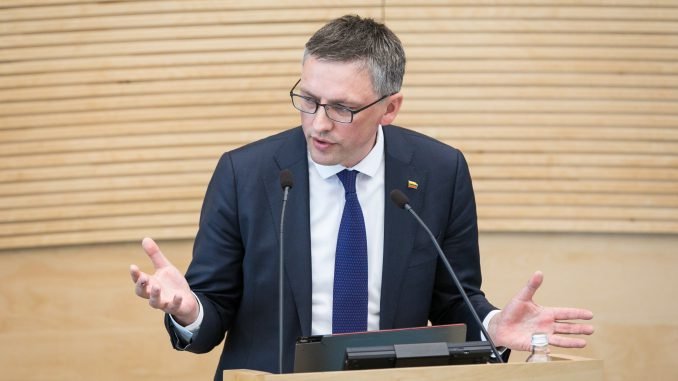
“MG Baltic and other business, interest groups, (such as) VP Market, came into the focus of our investigation only because, in our opinion, interference in political and social processes, (putting) influence on decision-makers is not accidental. It is systematic, going on for years, and we can’t put up with that,” Vytautas Bakas said as he presented the findings of the committee’s investigation to the Seimas.
“Decisions must be adopted here, in the Seimas (and) in the government. Courts, the prosecutor’s office and other state bodies can’t serve individual interest groups,” he said.
The draft findings passed the first vote in the parliament, with 88 votes in favor, none against and 13 abstentions, and are expected to be put to a final vote later in the day.
Bakas said that the aim of the interest groups covered in the investigation “was not to win a one-off tender”.
“Their task was to create a system that would generate income for them on a regular basis, for years,” he said, adding that there were signs of organized crime in activities by the groups’ top executives.
During the probe, which lasted more than six months, NSGK investigated attempts by some businesses to unlawfully influence politicians and heads and employees of state-owned companies and public authorities, as well as political party funding mechanisms and efforts by Russia’s Rosatom to play a role in sectors of importance to Lithuania’s national security.

Be the first to comment